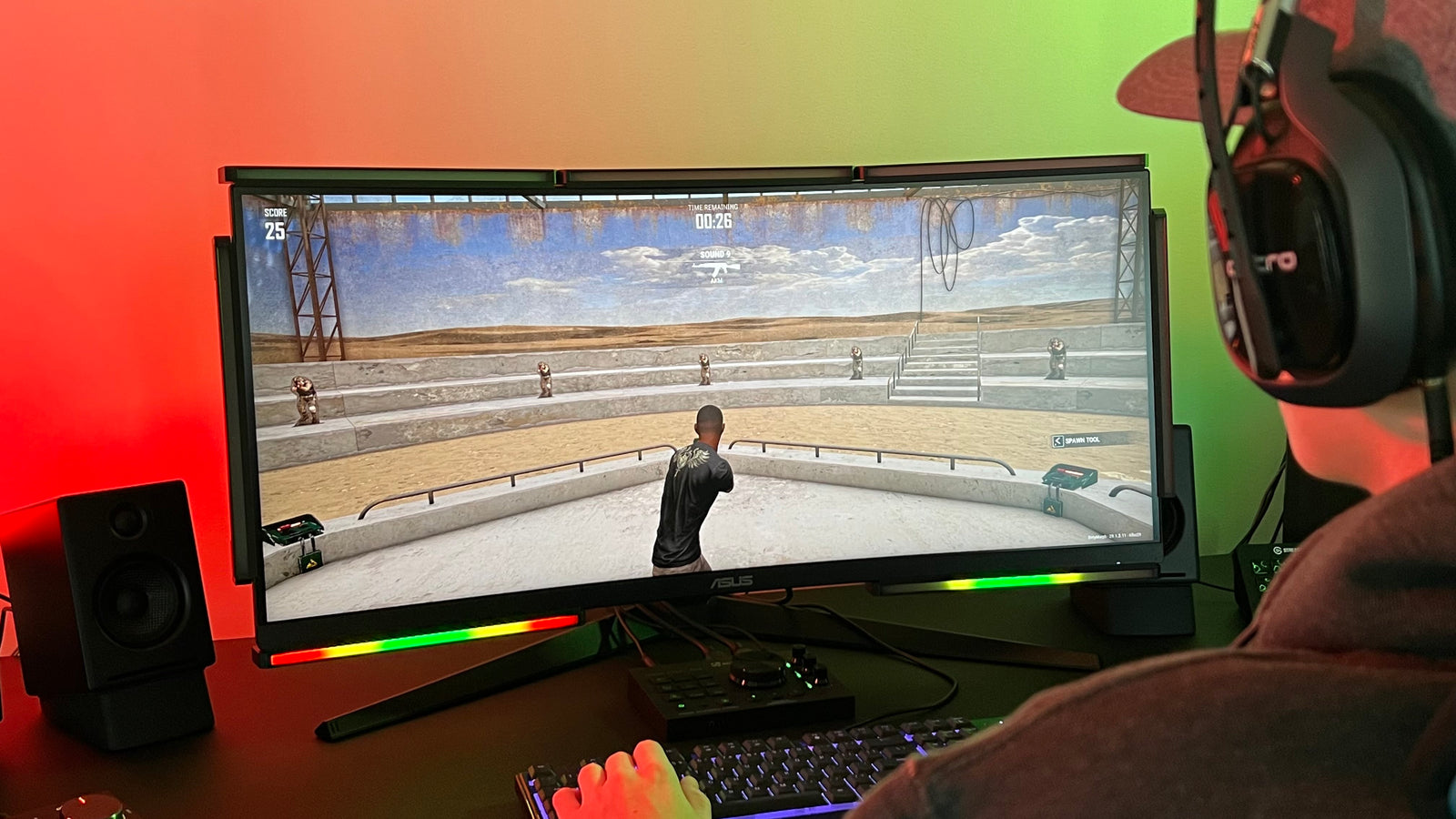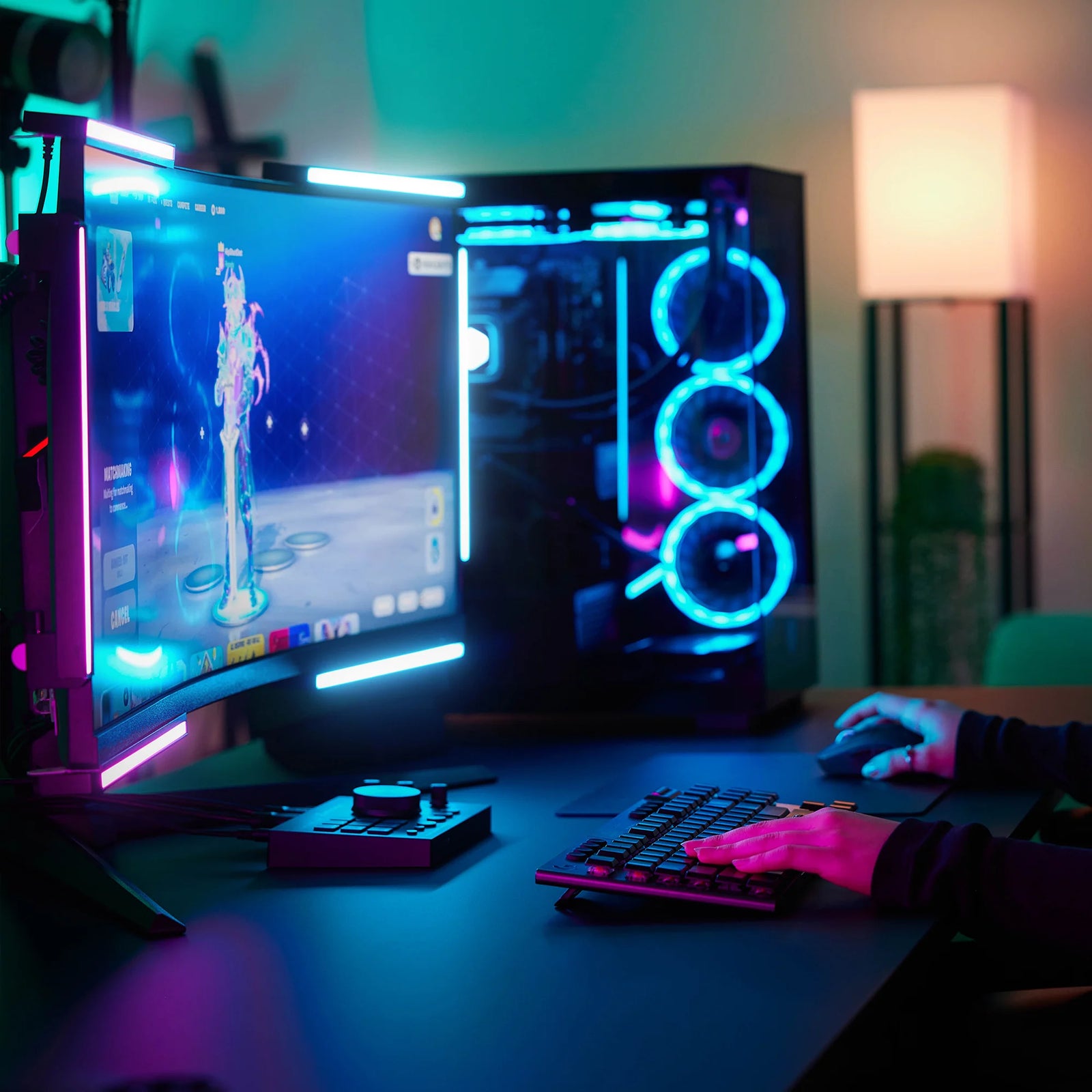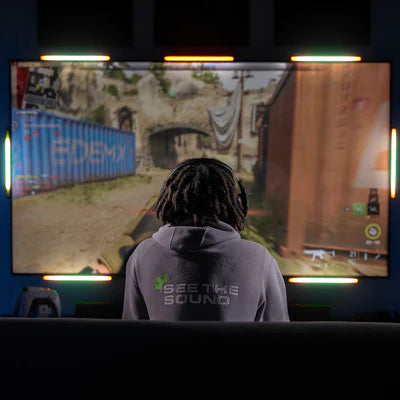Cheats are a massive issue in many online games, such as CS. Tools and accessibility devices aimed to assist and elevate players at a disadvantage can often be seen as unfair advantages or cheats. Cheats and accessibility tools are similar in nature, but different in practice. Too often this line is blurred, so let’s look at a few examples.
Some tools seem pay-to-win, such as monitors with varied refresh rates. In most first-person shooter games, having a higher refresh rate gives an advantage over others playing at 60 Hz. Players of games such as CS or Valorant often upgrade to monitors with higher refresh rates, such as 144 Hz or even 240 Hz. Higher refresh rates allow for faster and more accurate reactions. Despite refresh rates providing gamers with slight advantages over one another, developers and players alike don't generally consider it cheating.
Internet speed also plays a big role in determining how well a player can perform. Gamers with generally lower speeds can experience lag and latency issues, which players with high speeds rarely encounter. Ping and latency are generally important in fast-paced fps games, where even a half-second difference is massive. Despite the advantage, having higher internet speeds isn't cheating. This adopts a sort of "Survival of the fittest" view. Players with slow internet don't have many options besides investing in better internet or even moving to a more internet-accessible area.
GPUs (Graphics Processing Units) also enhance a player's gaming experience. More powerful graphic cards are expensive and not affordable to the average gamer. Players with more powerful GPUs are blessed with a much smoother experience and can allow for higher FPS. Like high refresh rate monitors, better GPUs provide an external advantage that doesn't interfere with in-game data.

On the console side, controller paddles have had their fair share of cheat accusations. Paddles allow players to change key binds to paddles/buttons on the back of the controller, allowing for more actions and faster responses. This is similar to additional buttons on gaming mice, which allow the same thing. However, these aren’t considered cheating despite the majority of gamers not having access to these additional buttons.

Open-air surround sound, 7.1 surround headsets, and most other surround sound systems have a considerable advantage over stereo users. For stereo users with left and right access, surround sound can feel like a cheat. Surround systems provide greater directional sound accuracy, which is paramount in many games, and provide a distinct advantage over others. The point is, that the playing field is never level. Every player has some advantage over another, whatever way that may be.

Audio Radar stands out as a distinct tool designed for accessibility, not as a gaming cheat. It was specifically developed to assist deaf and hard-of-hearing gamers by converting audio cues from games into visual signals through LED light bars. This allows players to 'see' the sounds around them, such as footsteps or gunfire, which provides them with the necessary spatial awareness that their hearing counterparts get through audio.
Most cheats use in-game data, usually hidden values, to give a player an advantage. Audio Radar doesn’t do that. It just takes sound, reads it as the game sends it to the player, and presents it in a way accessible for the deaf and hard of hearing. No data is being changed, introduced, tampered with, or used maliciously. If your headset doesn't hear it, neither will the Radar. By no definition is Audio Radar a cheat.
Audio Radar enhances sensory input by adding a visual component to the existing audio. This allows deaf and hard-of-hearing gamers to experience a sense initially void. No footsteps, gunshots, or any other audio cue is provided. The Radar’s ultimate goal is to make gaming more accessible to many gamers.
To reiterate it one last time, Audio Radar is simply an accessibility tool for the deaf and hard of hearing, made to even the playing field. It turns directional sound into light. This technology does not modify gameplay or give an undue advantage; instead, it compensates for a sensory deficit, leveling the playing field for all.




